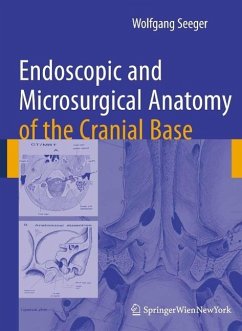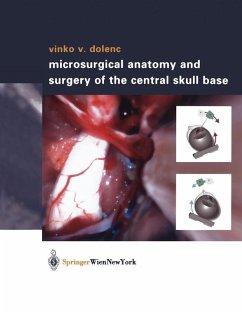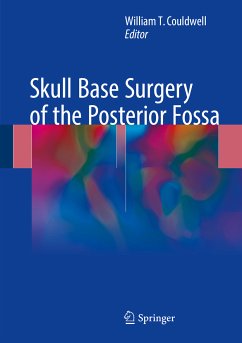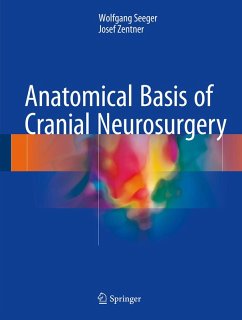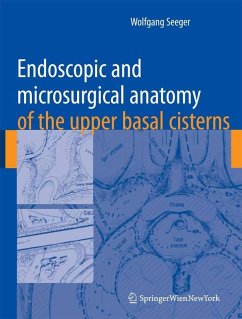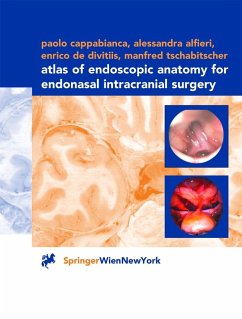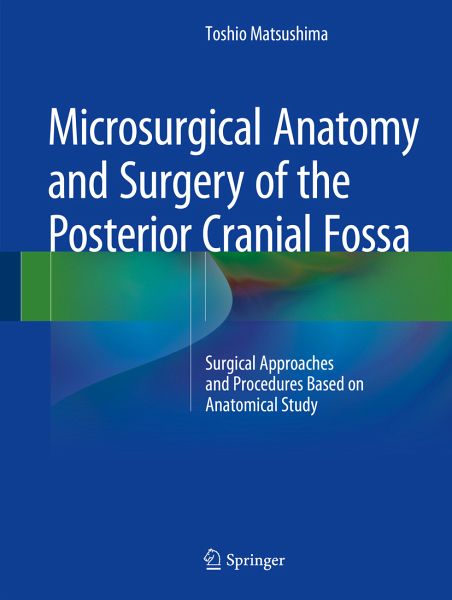
Microsurgical Anatomy and Surgery of the Posterior Cranial Fossa (eBook, PDF)
Surgical Approaches and Procedures Based on Anatomical Study
Versandkostenfrei!
Sofort per Download lieferbar
88,95 €
inkl. MwSt.
Weitere Ausgaben:

PAYBACK Punkte
44 °P sammeln!
This book describes the anatomy of the posterior fossa, together with the main associated surgical techniques, which are detailed in numerous photographs and step-by-step color illustrations.The book presents approaches and surgical techniques such as the trans-cerebellomedullary fissure approach and its variation to the fourth ventricle, as well as the cerebellomedullary cistern, infratentorial lateral supracerebellar approach to the fifth cranial nerve in the upper cerebellopontine angle, infrafloccular approach to the root exit zone of the seventh cranial nerve, transcondylar fossa approach...
This book describes the anatomy of the posterior fossa, together with the main associated surgical techniques, which are detailed in numerous photographs and step-by-step color illustrations.
The book presents approaches and surgical techniques such as the trans-cerebellomedullary fissure approach and its variation to the fourth ventricle, as well as the cerebellomedullary cistern, infratentorial lateral supracerebellar approach to the fifth cranial nerve in the upper cerebellopontine angle, infrafloccular approach to the root exit zone of the seventh cranial nerve, transcondylar fossa approach through the lateral part of the foramen magnum, and the stitched sling retraction technique utilized during microvascular decompression procedures for trigeminal neuralgia and hemifacial spasm. It also describes in detail the bridging veins of the posterior fossa, especially the petrosal vein, and bridging veins to the tentorial sinuses, which can block approaches to the affected area.
Each chapter begins with an anatomical description of the posterior fossa, after which the respective surgical approaches are explained in an easy-to-follow manner.
The original Japanese version of this work was published 8 years ago, and has established itself as a trusted guide, especially among young neurosurgeons who need to study various surgical approaches and techniques. In the course of being translated into English, some sections have been revised and new information has been added. The author hopes that the book will help neurosurgeons around the world perform safer operations with confidence.
The book presents approaches and surgical techniques such as the trans-cerebellomedullary fissure approach and its variation to the fourth ventricle, as well as the cerebellomedullary cistern, infratentorial lateral supracerebellar approach to the fifth cranial nerve in the upper cerebellopontine angle, infrafloccular approach to the root exit zone of the seventh cranial nerve, transcondylar fossa approach through the lateral part of the foramen magnum, and the stitched sling retraction technique utilized during microvascular decompression procedures for trigeminal neuralgia and hemifacial spasm. It also describes in detail the bridging veins of the posterior fossa, especially the petrosal vein, and bridging veins to the tentorial sinuses, which can block approaches to the affected area.
Each chapter begins with an anatomical description of the posterior fossa, after which the respective surgical approaches are explained in an easy-to-follow manner.
The original Japanese version of this work was published 8 years ago, and has established itself as a trusted guide, especially among young neurosurgeons who need to study various surgical approaches and techniques. In the course of being translated into English, some sections have been revised and new information has been added. The author hopes that the book will help neurosurgeons around the world perform safer operations with confidence.
Dieser Download kann aus rechtlichen Gründen nur mit Rechnungsadresse in A, B, BG, CY, CZ, D, DK, EW, E, FIN, F, GR, HR, H, IRL, I, LT, L, LR, M, NL, PL, P, R, S, SLO, SK ausgeliefert werden.



